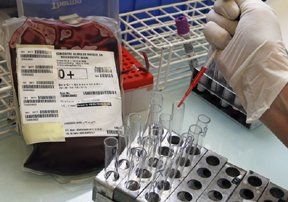 LONDON: A new screening test can detect twice as many women with ovarian cancer as conventional strategies, scientists, including one of Indian-origin, have found in the largest trial of its kind.
LONDON: A new screening test can detect twice as many women with ovarian cancer as conventional strategies, scientists, including one of Indian-origin, have found in the largest trial of its kind.
The new method uses a statistical calculation to interpret changing levels in women’s blood of a protein called CA125, which is linked to ovarian cancer.
This gives a more accurate prediction of a woman’s individual risk of developing cancer, compared to the conventional screening method which uses a fixed ‘cut-off’ point for CA125.
The new method detected cancer in 86 per cent of women with invasive epithelial ovarian cancer while earlier techniques detected just 41 per cent.
The trial results come from analysis of one arm of the UK Collaborative Trial of Ovarian Cancer Screening (UKCTOCS), the world’s largest ovarian cancer screening trial, led by University College London (UCL).
The research, published in the Journal of Clinical Oncology, evaluated 46,237 women for a 14-year period who continued to attend annual screening following their first screen.
Their blood was tested once a year for CA125 levels and then a computer algorithm was used to interpret their risk of ovarian cancer based on factors including the woman’s age, the original levels of CA125 and how that level changed over time.
The serial pattern was compared with known cases of cancer and controls to estimate the risk of having ovarian cancer.
University of New South Wales Vice-Chancellor Ian Jacobs, who co-developed the test, said the CA125 snapshot has been called into question as a reliable biological marker for ovarian cancer but the new findings indicate that “this can be an accurate and sensitive screening tool when used in the context of a woman’s pattern of CA125 over time.”
He hopes that the new approach will prove capable of detecting ovarian cancer early enough to save lives.
“There is currently no national screening program for ovarian cancer, as research to date has been unable to provide enough evidence that any one method would improve early detection of tumors,” Professor Usha Menon, the co-principal investigator and trial co-ordinator at UCL was quoted as saying by ‘The Guardian’.
“These results are therefore very encouraging. They show that use of an early detection strategy based on an individual’s CA125 profile significantly improved cancer detection compared to what we’ve seen in previous screening trials,” she said. -PTI






